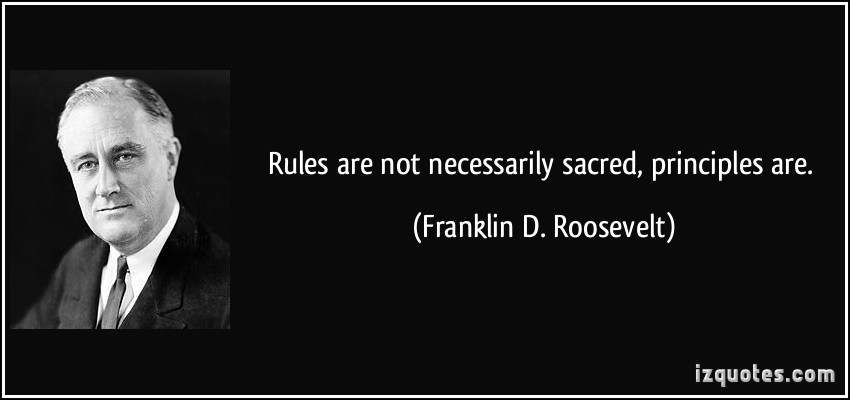
Whilst we may have boundaries, rules, and have learnt to say no and make the right decisions, it is important not to get too tied up in following rules for their own sake or becoming too strict! Else we will become legalistic like the Pharisees.
The "principle" of the rules are the important thing.
For example yesterday I had a digital sabbath where I refrain from using the internet or computers for a day.
However I had a brother who needed some boarding passes printed urgently for flights that evening. Am I going to refuse by sticking rigidly to my own rules? No!
The principle of the rule is not broken, which is to prevent me sitting there browsing away on the internet when I actually want to force myself to do other things. It was right for me to the good thing and get his family onto those flights.
Jesus says the same thing in Matthew 12:1-14
"He said to them, “If any of you has a sheep and it falls into a pit on the Sabbath, will you not take hold of it and lift it out? How much more valuable is a man than a sheep! Therefore it is lawful to do good on the Sabbath."
This is a very important point. It is the same with any advice or guidelines we give out. What is it we are trying to achieve and why are we saying it?
Only then can we ask ourselves if the aim is being achieved, even when the rules may appear to have been broken or bent.
When considering rules we most also consider that there are many matters that are judgement matters, or matters of opinion or personal choice. In these circumstances we do not have the right to give binding rules.
See Colossians 2:16 - 3:17.
I myself am vegetarian. But I clearly do not have the right to force or judge other people who are not!
I must however add that rules are of course are different to sin.
"Do not kill" or "Do not steal" are not matters of opinion! They are laws, and laws are not permitted to be broken.
But let us not be too judgemental or harsh on other matters, or "rules" or "advice". The principles of them are the important thing, not the letter of them.
Google has a motto "Don't be evil". Jesus' motto is however even better.
He simply says lets "do good".
Therefore lets not be judgemental of each other, but simply do good to each other!
The "principle" of the rules are the important thing.
For example yesterday I had a digital sabbath where I refrain from using the internet or computers for a day.
However I had a brother who needed some boarding passes printed urgently for flights that evening. Am I going to refuse by sticking rigidly to my own rules? No!
The principle of the rule is not broken, which is to prevent me sitting there browsing away on the internet when I actually want to force myself to do other things. It was right for me to the good thing and get his family onto those flights.
Jesus says the same thing in Matthew 12:1-14
"He said to them, “If any of you has a sheep and it falls into a pit on the Sabbath, will you not take hold of it and lift it out? How much more valuable is a man than a sheep! Therefore it is lawful to do good on the Sabbath."
This is a very important point. It is the same with any advice or guidelines we give out. What is it we are trying to achieve and why are we saying it?
Only then can we ask ourselves if the aim is being achieved, even when the rules may appear to have been broken or bent.
When considering rules we most also consider that there are many matters that are judgement matters, or matters of opinion or personal choice. In these circumstances we do not have the right to give binding rules.
See Colossians 2:16 - 3:17.
I myself am vegetarian. But I clearly do not have the right to force or judge other people who are not!
I must however add that rules are of course are different to sin.
"Do not kill" or "Do not steal" are not matters of opinion! They are laws, and laws are not permitted to be broken.
But let us not be too judgemental or harsh on other matters, or "rules" or "advice". The principles of them are the important thing, not the letter of them.
Google has a motto "Don't be evil". Jesus' motto is however even better.
He simply says lets "do good".
Therefore lets not be judgemental of each other, but simply do good to each other!





 RSS Feed
RSS Feed
